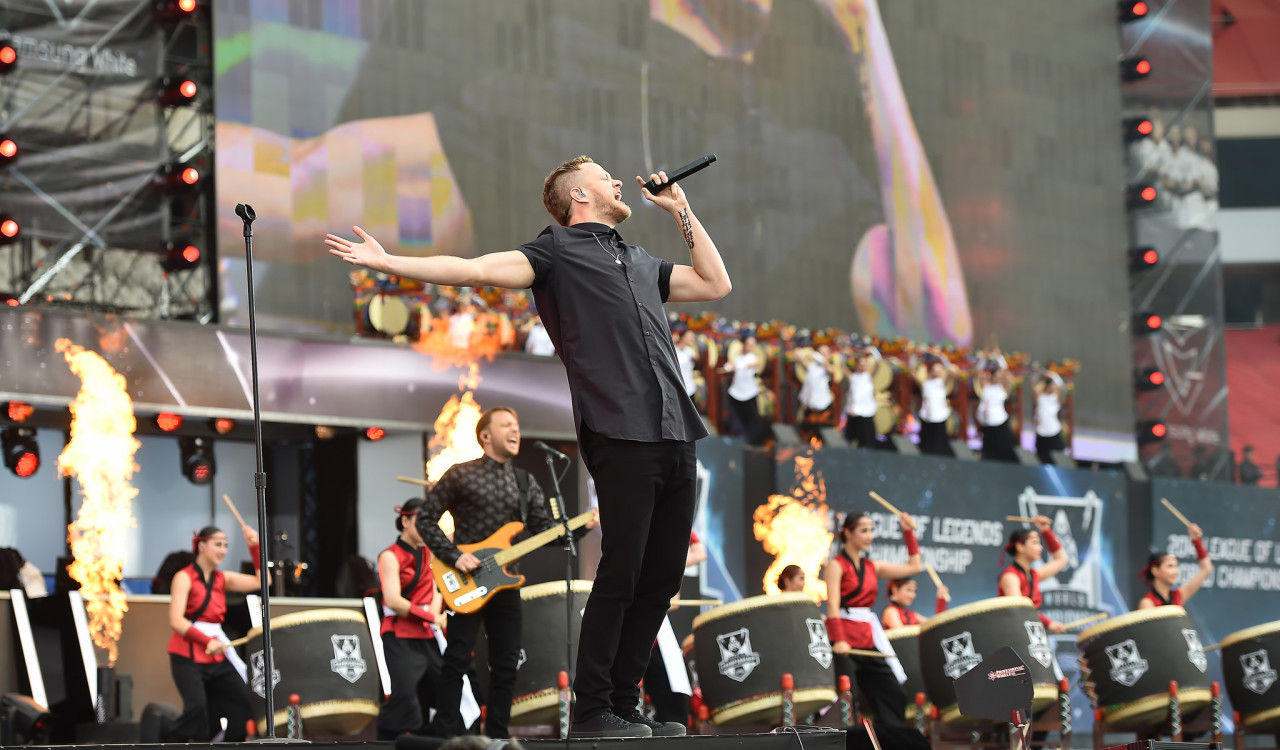Feedback: Multimedia Era – League of Legends and the Great Gatsby
October 21, 2014
 Courtesy of Tumblr.
Courtesy of Tumblr.
The World Finals of League of Legends (LoL) just concluded in Seoul, South Korea. Over the past few years LoL’s popularity ballooned beyond any expectations. E-sports, this strange phenomenon where teams of twenty somethings square off over computer games for prize money, grew just as vigorously. Riot Games, the company behind League of Legends, got Imagine Dragons to create a LoL anthem called “Warriors” and play a very brief concert on their stage at the World Finals.
The collaborative effort between Riot and Imagine Dragons represents a mere mark on a larger timeline. This era is a multimedia one. It does not simply suffice to stick to the music of your medium anymore. At least, it does not work if you want to produce something noticeable.
Riot has produced a metal album and some original songs related to their game. They have also provided videos elaborating the creative process behind their music.
Riot received good return on their effort, in form of a devoted fanbase, fueling the wide profit of the most popular game in the world. Riot has long taken a multimedia approach, often to great success, but they hardly stand alone. Exceptional films follow the same suit.
Plenty of films produce solid soundtracks, but they do so in the expected way. They match great sights with massive, sweeping sounds. They take emotional moments and pair them with a flared rush of noise. The music works on such a subtle level that it blends in with the scenery and becomes another thing directing the audience toward a feeling.
In scary movies, it is harsh chirps or sudden and violent drops, which stir a dread in your heat. But The Great Gatsby (2012) took a different approach by putting music on a central note.
Jay Z helped produce both the album and the film. No doubt the man’s music acumen helped secure original tracks from Florence and the Machine, The xx, will.i.am, and Lana Del Rey. Florence and the Machine’s “Over the Love” has Florence Welch screaming out about the green light, referencing directly the story the song was created for by bringing it back to The Great Gatsby’s biggest symbol. Florence Welch’s hyper dramatic vocals syncopate perfectly with the book and film’s most resonant image.
Along the way each rap song helps fit the glitz and glamor of the 1920’s to the current time. The Great Gatsby’s soundtrack is not there just to fit along with scenery. Music becomes more than a complement. It is meant to take some of your attention, to modernize and sell the movie.
Your ears are accustomed to the broad, loud strokes of traditional soundtracks, so Jay Z found modern artists that could pack each trailer with a recognizable sound that could compete against an infinite drone of used car commercials and Old Spice ads.
The tactic catches on. Lorde made Tears for Fears’s song “Everybody Wants to Rule the World” her own in a cover she made for The Hunger Games: Catching Fire. Her incredibly rich, smooth vocals added a touch of fame to the massive and epic soundtrack style that accompanies most trailers. Now the song features in trailers for videogames and movies alike.
These days, getting noticed will not come so easy. So many movies make it to the silver screen each month that even earnest cinephiles might miss something they’d love. It hardly helps that each film pounds out a trailer that packs together a two and a half minute long strain of moving mini-moments paired up with a vaguely orchestral track that gears up slowly and epically.
So, having Lorde sing alone makes a lot of difference. The trailer’s central feature becomes the famous singer, not the sweeping sound that matches up with moving pictures. The former is more distinct and harder to copy than the latter.
Riot getting Imagine Dragons to play in front of a crowd come to South Korea to watch a videogame played represents the new average, or perhaps the new above average. Imagine Dragon’s new song, Warriors, is not an absurd aggrandizement of a nerdy new obsession. It is a part of a grand new trend, made for and by minds molded in a multimedia era.
Riot’s not putting together more techno rhythms and dubstep wubs to ride along with their video game. They are taking hype to the next level by recruiting a pop-rock band to construct an anthem.
We live in a time when everyone’s an author in their spare time, when ad companies produce more than small countries, and when we can fill every single dull second with something. Boredom’s stock is down, but our attention spans have deflated so every new song and story competes for a second of our time.
Even though finding appeal in a sea of niches leaves plenty more swimmers to drown, I am not one to disparage the bed I will retire to. I’d rather not search for new sheets. And I would really like to hit up the internet for more media to ingest each time the sun rises. Folgers just won’t wake me up anymore.














